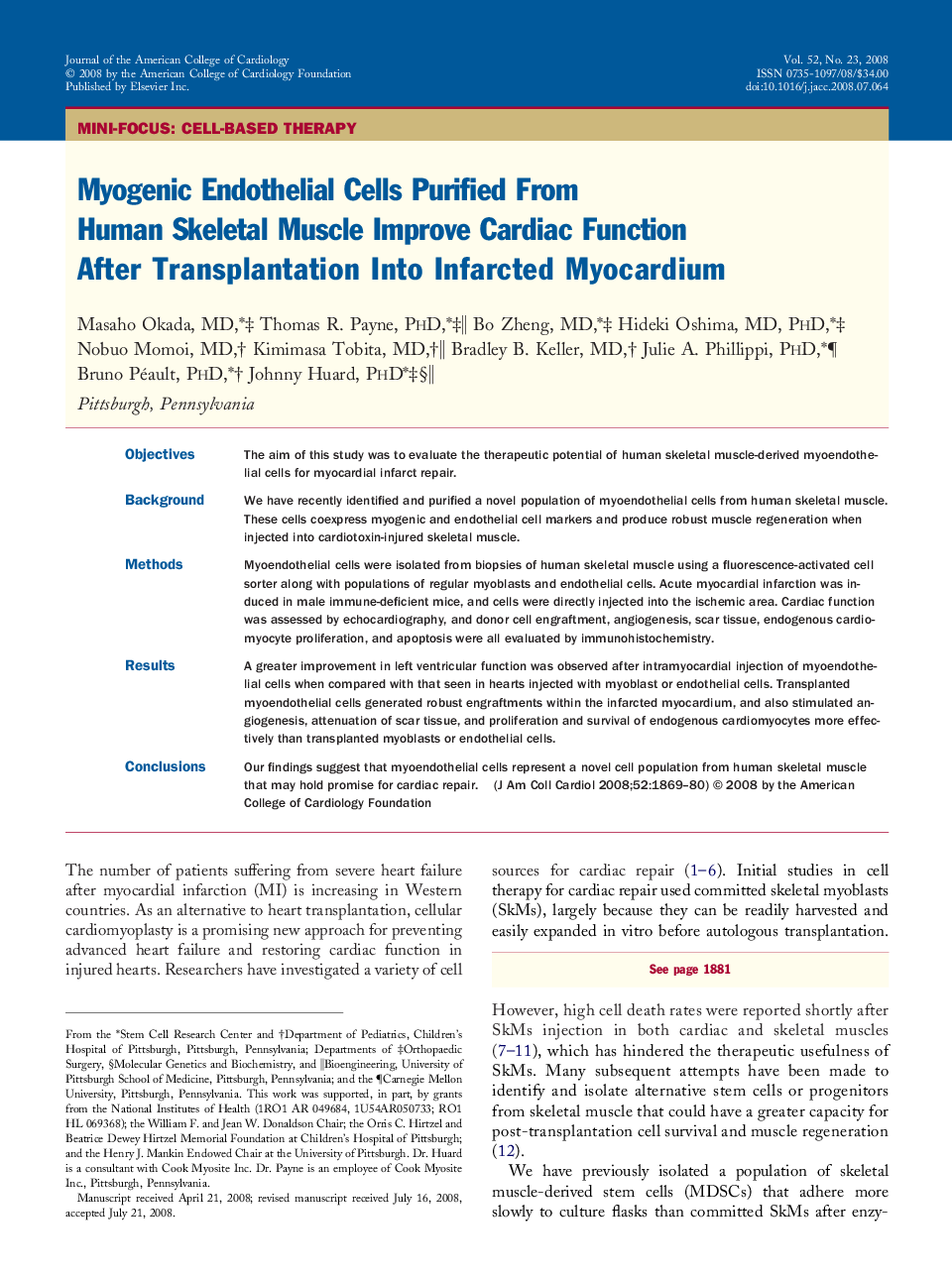| Article ID | Journal | Published Year | Pages | File Type |
|---|---|---|---|---|
| 2949608 | Journal of the American College of Cardiology | 2008 | 12 Pages |
ObjectivesThe aim of this study was to evaluate the therapeutic potential of human skeletal muscle-derived myoendothelial cells for myocardial infarct repair.BackgroundWe have recently identified and purified a novel population of myoendothelial cells from human skeletal muscle. These cells coexpress myogenic and endothelial cell markers and produce robust muscle regeneration when injected into cardiotoxin-injured skeletal muscle.MethodsMyoendothelial cells were isolated from biopsies of human skeletal muscle using a fluorescence-activated cell sorter along with populations of regular myoblasts and endothelial cells. Acute myocardial infarction was induced in male immune-deficient mice, and cells were directly injected into the ischemic area. Cardiac function was assessed by echocardiography, and donor cell engraftment, angiogenesis, scar tissue, endogenous cardiomyocyte proliferation, and apoptosis were all evaluated by immunohistochemistry.ResultsA greater improvement in left ventricular function was observed after intramyocardial injection of myoendothelial cells when compared with that seen in hearts injected with myoblast or endothelial cells. Transplanted myoendothelial cells generated robust engraftments within the infarcted myocardium, and also stimulated angiogenesis, attenuation of scar tissue, and proliferation and survival of endogenous cardiomyocytes more effectively than transplanted myoblasts or endothelial cells.ConclusionsOur findings suggest that myoendothelial cells represent a novel cell population from human skeletal muscle that may hold promise for cardiac repair.
